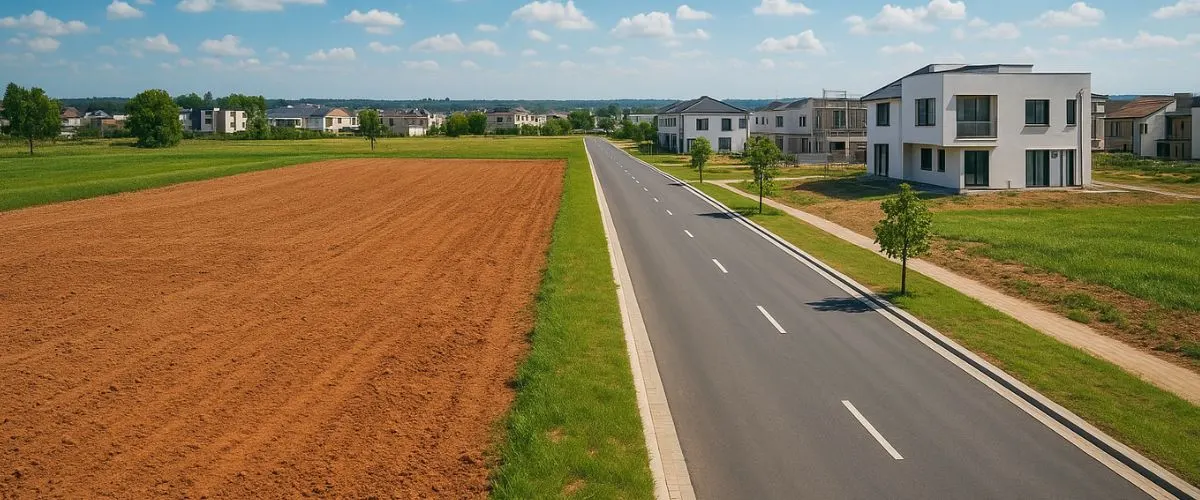
Purchasing land in India has always been considered a sign of stability, wealth, and long-term security. For many, it represents the chance to build a dream home, cultivate farmland, start a business, or simply hold an appreciating asset. But while buying a land in India can be rewarding, it is not without risks. Outdated land records, encroachments, and title disputes are common, and buyers who neglect due diligence can end up facing years of litigation, financial losses, or even losing their land altogether.
That’s why, before you make any commitment, you need a structured and cautious approach. This guide walks you through everything you must know before a property purchase in India, step by step.
The very first step in buying a land in India is clarity. Ask yourself: Why am I buying this land?
Once you have defined your purpose, set a comprehensive budget. Apart from the purchase price, factor in:
A clear budget prevents overspending and helps you focus on the right plots.
In real estate, location is everything. The land’s future value and usability depend heavily on where it is situated.
Consider:
Example: Areas around Noida International Airport and Bengaluru farmlands have gained attention because of upcoming infrastructure projects and growing demand.
This is the most critical step in property purchase in India. Title verification ensures that the seller has a clear, marketable ownership of the land.
Check for:
Without proper title verification, even a registered sale can be challenged later.
Each state government in India regulates how land can be used. Before buying, confirm that the land is legally fit for your purpose.
If you want to use agricultural land for residential or commercial purposes, you must obtain a **conversion certificate** from the local authority.
A licensed surveyor plays a key role in verifying:
Survey reports protect you from future disputes and ensure you’re buying the exact land promised in documents.
A plot without proper access is nearly useless. Before purchasing:
Before making payment, confirm with the municipal or development authority that the land is not:
Many buyers unknowingly invest in restricted lands. Avoid:
Key state-specific documents to check:
Always engage a local lawyer to interpret these records correctly.
Even if the land looks promising, lack of amenities reduces its practical usability. Check for:
For any property purchase in India to be legally valid, you must register it at the sub-registrar’s office.
Documents required:
After paying stamp duty and registration charges, the ownership transfer is complete. Don’t forget to complete the mutation process, which updates government records in your name. Without mutation, reselling or taking loans against the property becomes difficult.
Even seasoned buyers rely on experts. Consider hiring:
Estatebull offers complete support—from due diligence to registration—ensuring a secure property purchase in India.
Fraudulent land deals are not uncommon in India. Watch for:
Always pay in stages and only after legal clearance.
Agricultural land comes with stricter rules:
Buying a land in India can be one of the most rewarding investments of your life—but only if done carefully. Since raw land doesn’t have the built-in safeguards of developed properties, burden of due diligence lies entirely on the buyer.
By defining your purpose, checking titles, verifying zoning, ensuring access, and working with professionals, you can make your property purchase in India secure, legal, and profitable.
1. Can NRIs purchase land in India?
NRIs can buy residential and commercial land but are not allowed to buy agricultural, plantation, or farmhouse land under FEMA rules.
2. What is mutation of land?
Mutation updates government revenue records in the buyer’s name after registration. It is essential for tax payments and resale.
3. How do I know if land is free from disputes?
Check the encumbrance certificate, verify documents with a property lawyer, and check court records for pending cases.
4. Is agricultural land a good investment in India?
Yes, but only if purchased legally with all approvals. Illegal purchases can be canceled by authorities.
5. How long does land registration take in India?
Typically 1–2 weeks, depending on verification and state procedures.